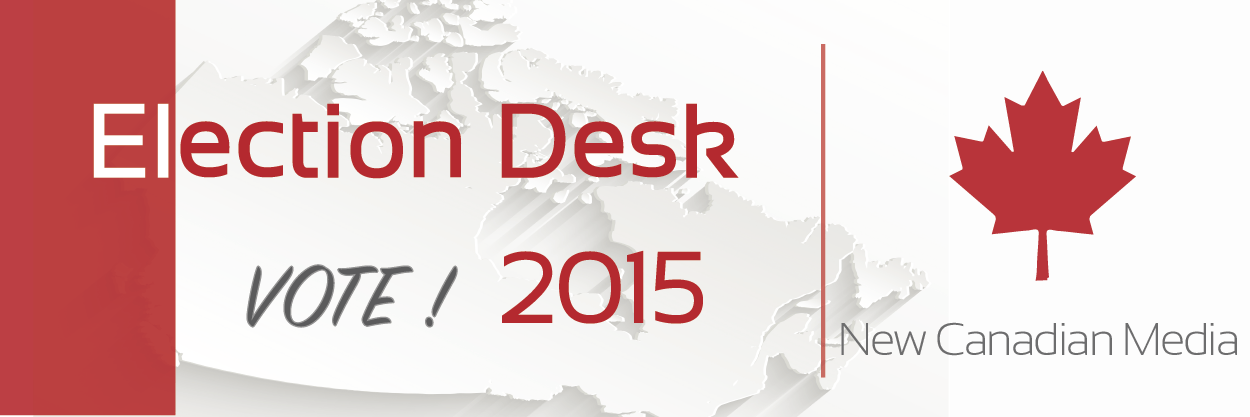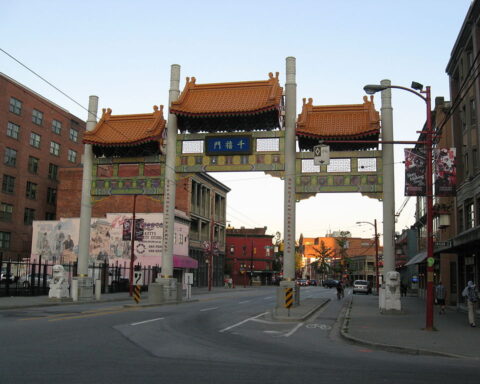
In the grand scheme of things in the election campaign it was a minor incident, but an unsettling one. I refer to the odd spectacle that unfolded at a press conference for the Prime Minister last week, in which representatives of the press were heckled and, at points, shouted down by Conservative supporters.
As video of the incident showed, reporters apparently incurred the wrath of some of the crowd when they had the temerity ask questions about the Duffy trial.
In widely seen footage, one Tory supporter went further, accosting and repeatedly cursing at reporters, before being expelled by security.
On one hand, it’s hard to take this seriously: the scene was bizarre and rather surreal, particularly when the gentleman in question curiously began accusing the reporters of cheating on their taxes.
When asked what led him to that conclusion, he responded with the unassailable logic that the reporter in question was “a lying piece of s—.”
Conservative spokespeople, to their credit, allowed that the incident never should have happened, and the Prime Minister himself tried to quiet the crowd, so the inclination is to ignore this episode, or just laugh at the absurdity of it all.
A foreseeable outcome
However, taking a step back, it is hard to shake the feeling that somehow this incident may say something more about the state of our politics.
In particular, at a time when it has become common in Canada for certain parties to traffic in the politics of polarization, isn’t this a thoroughly foreseeable, or even inevitable outcome?
[I]t can also fragment the public, encouraging party supporters to retreat into hostile ideological silos.
After all, if parties engage in the type of politics where perceived opponents are routinely demonized and disparaged as not only being wrong, but also untrustworthy and even malevolent, should it really be a surprise when avid supporters of those parties believe what they are being told and internalize the angry tone that so often characterizes attack ad campaigning?
In fact, if you are relying on those tactics, isn’t this exactly what one would want: motivated, even angry supporters who are unwilling to even hear criticism of their party and who will vigorously fight the perceived persecution of ‘their side’?
Certainly, one would think the fellow at the press conference would be voting Conservative.
This is the problem with reflexive attack politics: not only that it leads to poisonous animosity and pitched, seemingly endless warfare between the political parties themselves but, worse still, it can also fragment the public, encouraging party supporters to retreat into hostile ideological silos.
Following America’s footsteps
To see where this can lead, we need only look across the border, where the level of political polarization paints a vivid cautionary tale.
As everyone knows, the U.S. federal government is all but paralyzed these days.
Fierce opposition between Democrats and Republicans has seemingly become reflexive, with the Grand Old Party (GOP) controlled House of Representatives and the Democratic Presidential administration proving unable to cooperate on producing virtually any legislative initiatives of real substance.
But it is the accordant public polarization that is most striking, as vocal minorities have come to seemingly dominate public political discourse.
[A]ny hint of cooperation with ‘the other side’ has come to be regarded as traitorous.
The rise of the exceptionally right wing Tea Party movement is only one example of this.
The passionate, and at times almost deranged, opposition of this portion of the electorate to conflicting views, and to the Obama administration in particular, has been a driving force in American politics for much of the last decade.
While this movement has bolstered the Republicans in elections in recent years, it has also made it difficult for the Tea Party to meaningfully participate in governing, as any hint of cooperation with ‘the other side’ has come to be regarded as traitorous.
Over time, this has weeded out more moderate Republicans and pushed the party further to the right, with anti-establishment candidates such as presidential aspirant Ted Cruz, winning election in defiance of the more centrist Republican establishment.
As a result, even initiatives supported by Republican political leadership as key to the party’s electoral prospects, such as immigration reform, have been internally blocked.
Ironically, this is often to the detriment of the party itself, as it has increasingly reduced the Republican voting pool to a smaller and more insular, if more zealous and louder, minority. It has also resulted in unprecedented levels of political polarization and discord.
Thankfully, here in Canada we can take comfort that in our country it has not come to this, but as the spectacle at the press conference indicates, perhaps we are not as far away as we like to think.
Darren Thorne (B.A., LL.B, LL.M) is an international lawyer and adjunct law professor, specialized in international affairs, development and constitutional and international human rights law. He was previously counsel to Ontario’s Deputy Attorney General and has an extensive history of international legal and project work throughout Africa, Asia and Europe.





